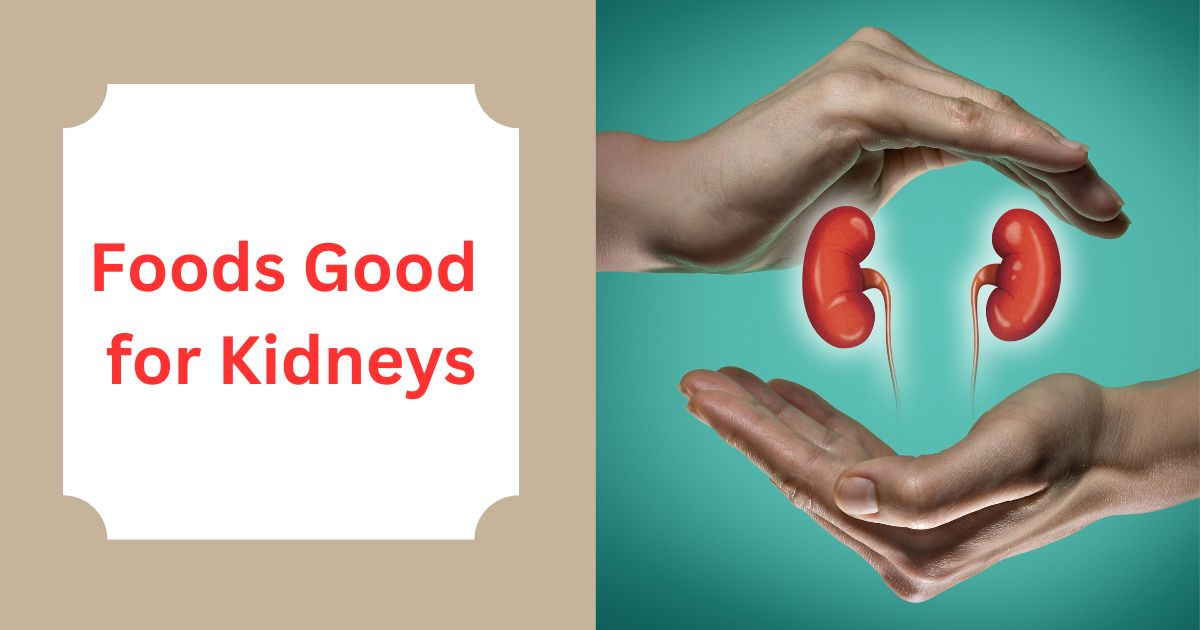The kidneys are remarkable organs that play a crucial role in maintaining overall health. These bean-shaped powerhouses filter waste products, excess fluids, and toxins from the blood, help regulate blood pressure, and maintain the body’s electrolyte balance. However, like any vital system, the kidneys require proper care and attention to function optimally. One way to support kidney health is through a well-balanced diet that includes foods good for kidneys.
Understanding Kidney Health
Before delving into kidney-friendly foods, it’s important to understand the principles of maintaining kidney health. Individuals with kidney issues, such as chronic kidney disease (CKD), benefit from a diet that focuses on minimizing the workload of the kidneys. This involves controlling sodium, potassium, and phosphorus intake, as well as monitoring fluid consumption (some control is also needed on protein intake).
Top Foods Good for Kidneys
Berries: Berries, such as blueberries, strawberries, and raspberries, are rich in antioxidants and low in potassium. They make excellent snacks or additions to breakfasts and smoothies.
Cauliflower: Cauliflower is another rich addition to the list of foods good for kidneys. This versatile vegetable is low in potassium and an excellent substitute for high-potassium foods like potatoes. It can be used to create delicious rice, mashed “potatoes,” and even pizza crust.
Cabbage: Cabbage is a cruciferous vegetable that is low in potassium and an excellent source of vitamins K and C. It can be included in salads, stir-fries, and soups.
Fish: Fatty fish like salmon, mackerel, and trout are high in omega-3 fatty acids and provide a good source of protein. Omega-3s have anti-inflammatory properties and may help lower the risk of kidney disease progression.
Egg Whites: Egg whites are a high-quality, low-phosphorus source of protein. They can be used in various recipes, including omelets and baking.
Red Bell Peppers: Red bell peppers are low in potassium and packed with vitamins A and C. They can be added to salads, omelets, or eaten as crunchy snacks.
Apples: Apples are a great source of fiber and antioxidants, and they are low in potassium. Remember to peel them to reduce their potassium content even further.
Garlic and Onion: These flavor-packed ingredients are low in potassium and can be used to enhance the taste of dishes without adding excessive salt.
Pineapple: Pineapple is lower in potassium, sodium, and phosphorus than other fruits like oranges and bananas.
Red Grapes: Red grapes also contain low amount of potassium, sodium, and phosphorus, and thus forms another kidney-friendly fruit.
Olive Oil: Olive oil is a heart-healthy fat that can be used for cooking or as a salad dressing. It provides healthy monounsaturated fats and may have anti-inflammatory properties.
Skinless Chicken: We include skinless chicken because skinless chicken contains less fat and phosphorus than skin-on chicken.
White Bread: While whole wheat is generally preferred for its higher fiber content, individuals with kidney issues may opt for white bread as it contains less potassium and phosphorus.
Fluid Management
Maintaining proper fluid balance is crucial for kidney health. While water is the best choice for staying hydrated, individuals with kidney problems may need to restrict their fluid intake. This includes monitoring not only water intake but also the fluids present in foods like soups, fruits, and vegetables.
Consult a Professional
It’s important to note that individual dietary needs can vary based on the severity of kidney issues and other underlying health conditions. Consulting a registered dietitian or healthcare professional is recommended before making significant changes to the diet, especially for individuals with existing kidney problems.
By the way, if you are interested, we published articles on the best foods for heart, foods for brain, and best cancer-fighting foods.
Final Thoughts
A diet rich in foods good for kidneys can be a key component of maintaining kidney health. By incorporating foods low in potassium, phosphorus, and sodium, while emphasizing nutrient-rich options, individuals can support their kidneys’ vital functions and overall well-being. Remember that a well-balanced diet, coupled with regular physical activity and proper medical care, can help protect and promote kidney health for years to come.
TIPS: For related reading, read our article about the best foods for liver.

